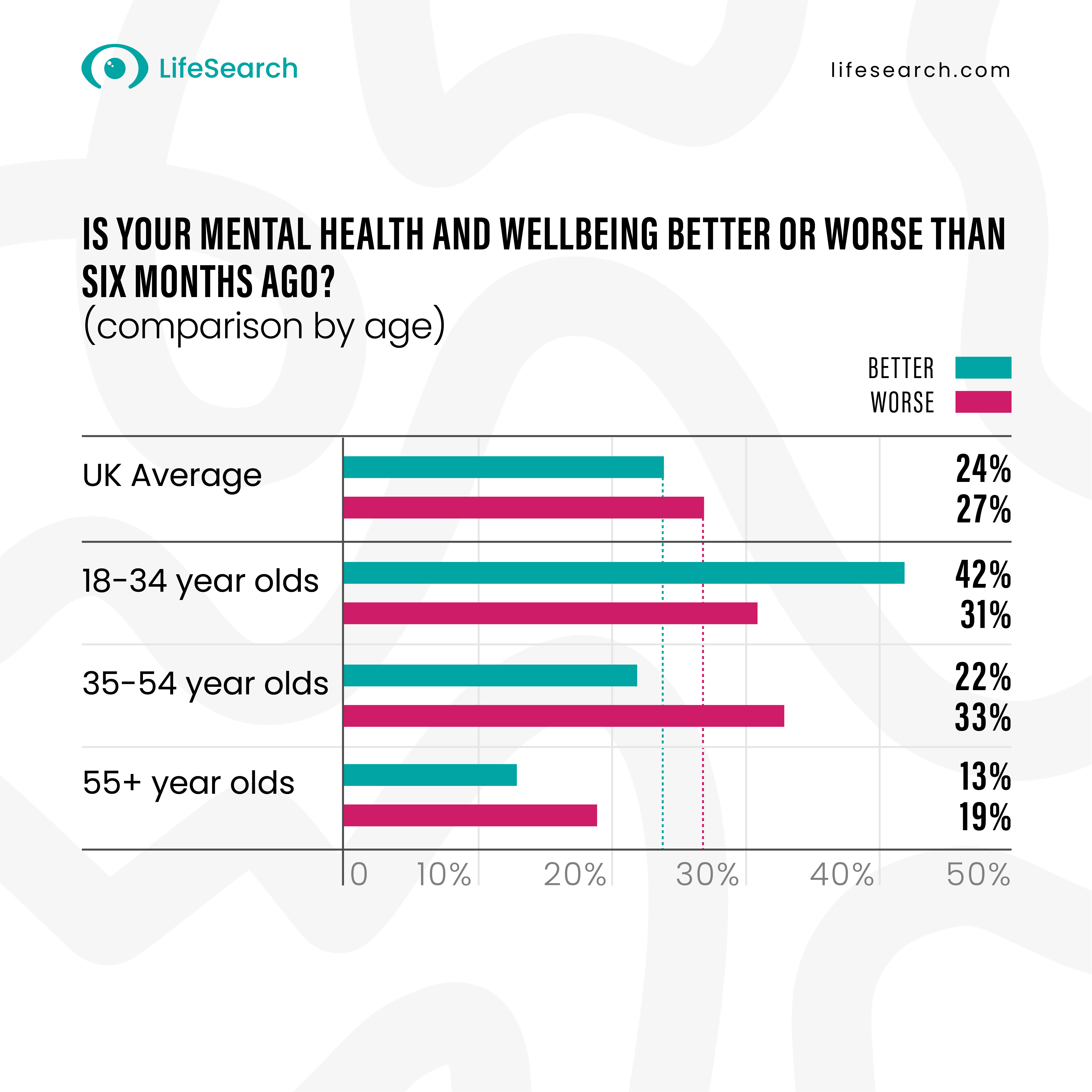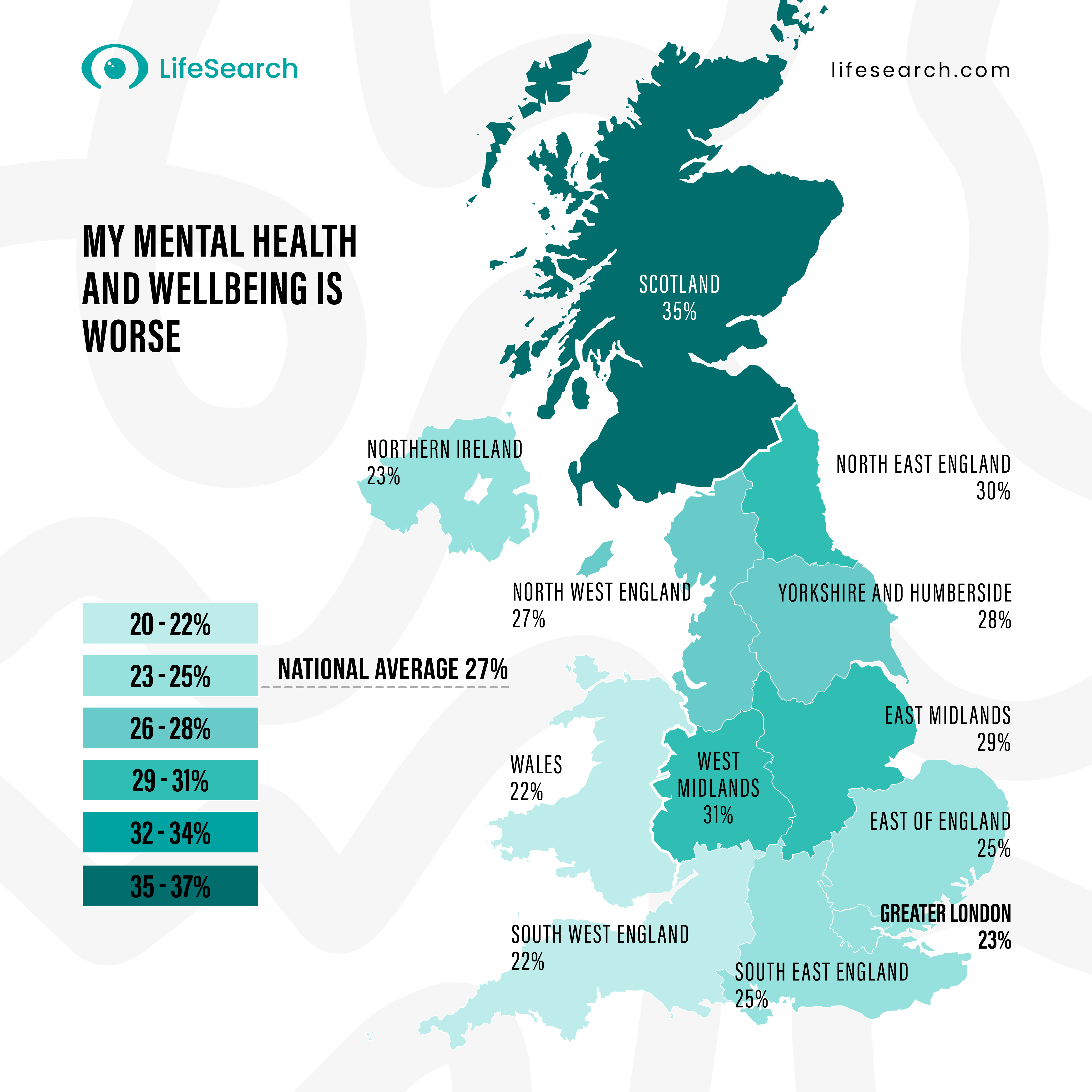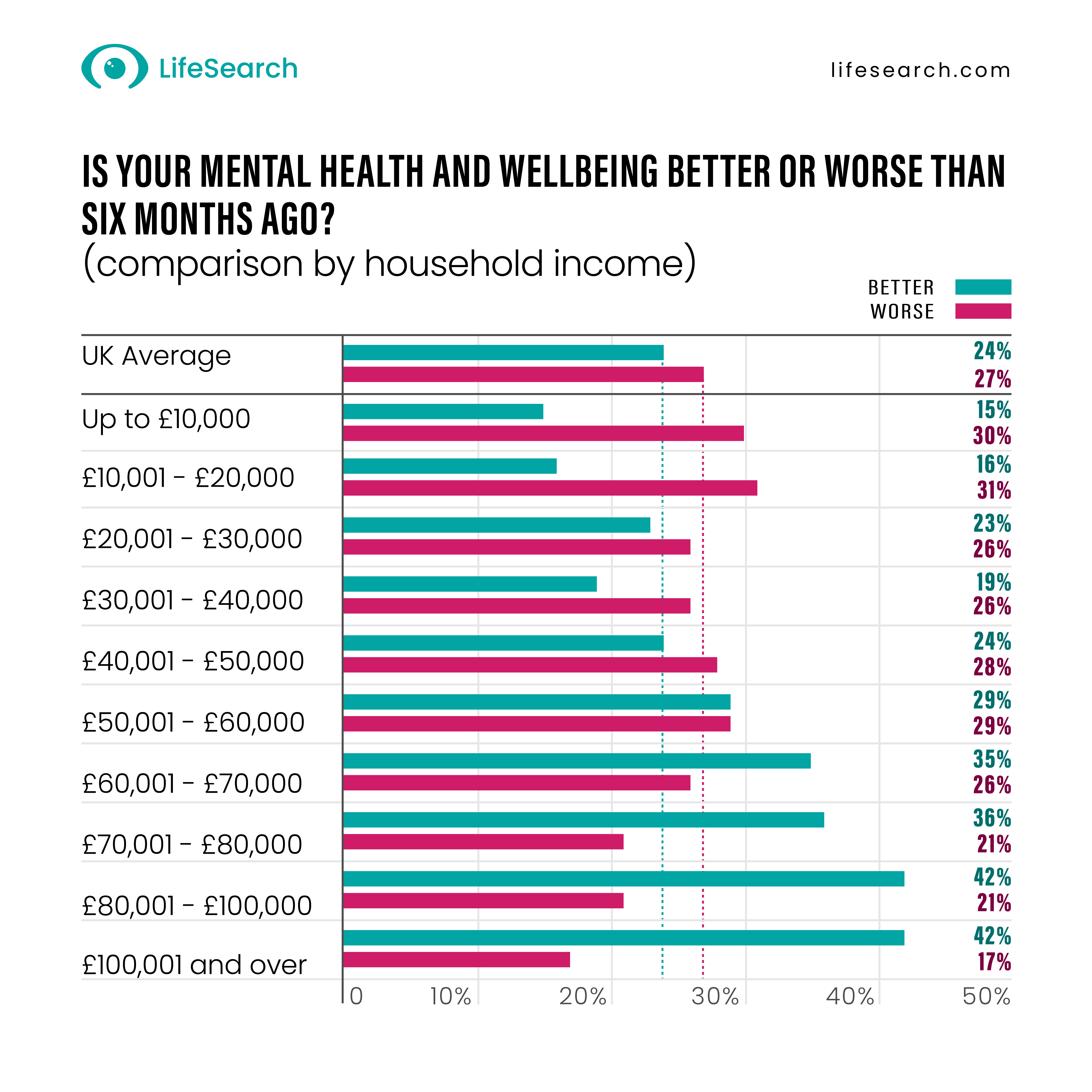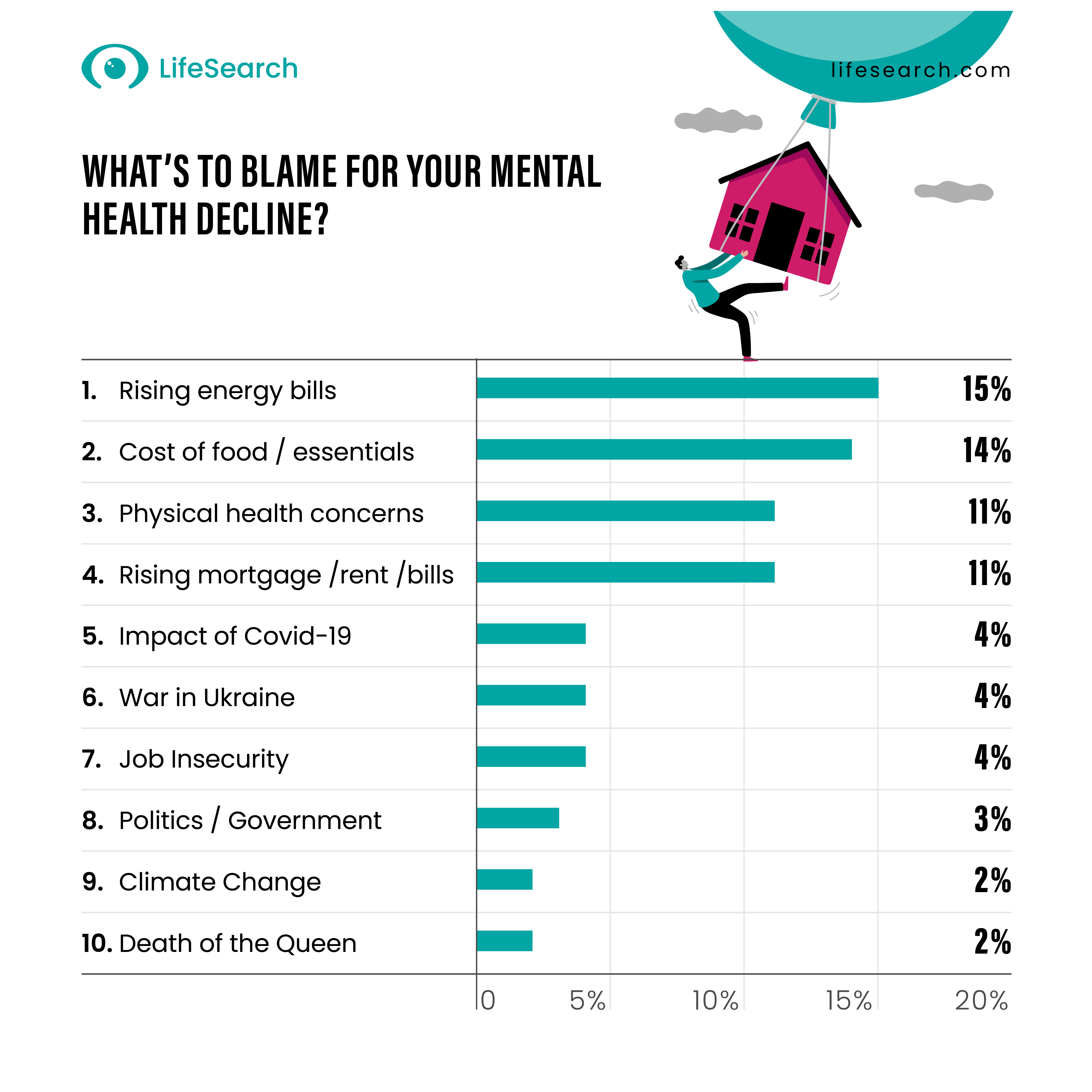What’s denting mental health?

Admittedly, six months seems like a lifetime now, but cast your mind back to then and the country – and the world – was still in the haze of Covid and its measures while getting used to the prospect of much higher costs and somehow coming to terms with the abhorrent situation in Ukraine. It was a brutal mix.
Some room for optimism?
Given the state of play six months ago, we didn’t quite know how the data would read. With that, and perhaps surprisingly, half (50%) of people report no difference in their mental health, with roughly the same numbers reporting better (24%) as worse (27%).
That may be more optimistic than one might have predicted and, in fact, in 18-34s, 42% report better mental health now versus six months ago compared to the 31% say worse. The real gulf now versus six months ago is seen in the 35-54s, where one in three (33%) say their mental health is worse.

Interestingly, Scotland reports the biggest plummet with 35% north of the border reporting a decline in mental health. Second-in-line at 31% is the West Midlands followed by the North East (30%). Wales and Northern Ireland are most likely to report no change and four in ten (39%) Londoners actually report better mental health – 23% said worse – now versus six months ago.

There is actually very little difference in mental health decline between those earning under £20,000 p/a and those earning £60,000 p/a. It seems telling that the mental health impact is less severe only after one earns £60,000 p/a and above. This almost certainly points at how the current situation is impacting far higher up the income chain than crises in days past.

What’s denting mental health (as if we didn’t know)
There’s a sense of the obvious around this question but nonetheless we asked people to pinpoint the one thing above all others that is denting their mental health. And in basic terms, the various facets of the cost-of-living crisis are overwhelmingly to blame. Rising energy bills (15%), the rising costs of the essentials (14%), and the rising cost of rents and mortgages (11%) came out at ranks 1, 2 and 3.
On a par with the rising cost of rents / mortgages, 11% say that physical health concerns — inclusive of having operations postponed and difficulty seeing health professionals — have been most detrimental.
Most other possible reasons for ailing mental health noted single-digit-percentage responses, but it’s worth calling out that 6% of 18-34s say job insecurity is grinding down their mental wellbeing.

Weighing on the mind
Later in our survey we asked Brits to guess how often they think about the cost-of-living crisis and its impact. Is it daily, weekly, monthly …?It’s daily. In some cases multiple times per day. Nationwide, 44% of us think about the cost-of-living crisis (and its impact) daily or multiple times per day. Over half (51%) of UK females think about it daily or multiple times per day, and 54% of 35-54-year-olds think about it daily or multiple times per day.
As if there was any doubt, the issue is dominant unlike any other. Nationwide, for those who didn’t answer daily or multiple times per day, the cost-of-living crisis is still front-of-mind three-to-five times per week (14%) or once or twice per week (22%).
When we splice the data by household profile, it’s perhaps not hugely surprising that the cost-of-living is infiltrating parents’ wellbeing most. The majority (58%) of single parents think about the cost-of-living crisis daily or multiple times per day, and half (50%) of cohabiting parents are feeling that same pressure daily or multiple times per day.
For other household profiles, cost-of-living is certainly prevalent but not as keenly felt. Parents are undoubtedly up against it, as you’ll read elsewhere in the report.
Further reading
To explore the ways in which different UK demographics, regions, households and families are coping with the vice-like squeeze on their incomes, you can read blogs stemming from the Health, Wealth & Happiness Hub, or you can read the report in full.A ‘Searcher since 2015, John is a Protection expert having worked in our customer facing teams and best practice teams, and now is immersed in Protection Content and Marketing.See all articles by John Rogers

New year, new you
Diet, nutrition and health MOTs – free lifestyle support to help you change and stay changed.
11 Jan 2023, by LifeSearch
4 min read
Spotlight on virtual GP services
Free doctor appointments when you want them, quickly and on your timetable.
11 Jan 2023, by John Rogers
3 min read
Health & lifestyle's role in life insurance costs
We take a look at how life insurance benefits may save you money at both ends
11 Jan 2023, by John Rogers
4 min read